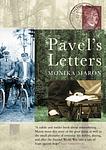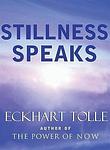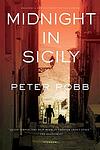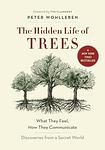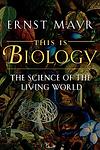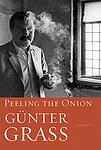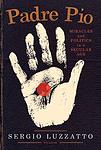The Greatest Italian, German "Nonfiction" Books Since 1990
Click to learn how this list is calculated.
This list represents a comprehensive and trusted collection of the greatest books. Developed through a specialized algorithm, it brings together 300 'best of' book lists to form a definitive guide to the world's most acclaimed books. For those interested in how these books are chosen, additional details can be found on the rankings page.
Genres
Countries
Date Range
Reading Statistics
Click the button below to see how many of these books you've read!
Download
If you're interested in downloading this list as a CSV file for use in a spreadsheet application, you can easily do so by clicking the button below. Please note that to ensure a manageable file size and faster download, the CSV will include details for only the first 500 books.
Download-
1. The Rings of Saturn by W. G. Sebald
"The Rings of Saturn" is a richly detailed travelogue that follows the narrator's journey along the coast of Suffolk, England. The narrative weaves together history, literature, and personal anecdotes, exploring topics as diverse as the decline of the herring industry, the horrors of colonialism in the Congo, and the life of philosopher Sir Thomas Browne. The book is characterized by its melancholic tone, its digressive style, and its meditative reflections on memory, time, and decay.
-
2. The Emigrants by Winfried Georg Sebald
"The Emigrants" is a novel that explores the experiences and memories of four different emigrants, each with a unique and complex history. The narrative primarily focuses on the psychological impact of displacement and the haunting nature of the past. The author delves deep into their lives, revealing their struggles with identity, loss, and the persistent influence of their roots. The narrative is interwoven with historical events, photographs, and other documents, creating a rich tapestry that blurs the line between fact and fiction.
-
3. I Will Bear Witness by Victor Klemperer
"I Will Bear Witness" is a chilling personal account of life in Nazi Germany from 1933-1941. The author, a Jewish professor, meticulously details the daily life under Hitler's regime, capturing the fear, oppression, and constant threat that Jews faced. The diary serves as a powerful testament to the horrors of the Holocaust and the resilience of those who endured it.
-
4. Pavel's Letters by Monika Maron
"Pavel's Letters" is a poignant narrative that explores the personal journey of a novelist who uncovers her family's past in war-torn Poland. After receiving a collection of letters from her grandfather, Pavel, the protagonist delves into the history of her family, their experiences during World War II, and the hardships they faced under Stalin's regime. The book is a compelling blend of personal memories, historical facts, and the exploration of the human spirit's resilience in the face of adversity.
-
5. Essays On Music by Theodor Adorno
This collection is a comprehensive anthology of critical essays on the subject of music, written by one of the 20th century's most influential philosophers and social critics. The work delves into the complexities of musical composition, performance, and reception, offering a profound exploration of the social, political, and cultural dimensions of the musical experience. The author critiques the commodification of music in capitalist societies and the way this impacts artistic authenticity and the listener's experience. Through a series of essays, the author examines various genres and eras, from classical to jazz to popular music, applying a rigorous theoretical framework that draws from Marxist thought, sociology, and psychoanalysis to dissect the role of music in modern life.
-
6. Crossing The Threshold Of Hope by Pope John Paul II
In "Crossing the Threshold of Hope," the author provides a profound exploration of his faith and addresses complex theological and philosophical questions about Christianity. Through a series of letters, he discusses the nature of faith, the existence of God, the role of the Church, and the challenges of contemporary moral issues. This book offers insights into his personal beliefs and provides guidance on how individuals can find hope and meaning in their lives through spiritual commitment and religious understanding.
-
7. Stillness Speaks by Eckhart Tolle
The book is a guide to discovering profound inner peace and serenity through the power of mindfulness and stillness. It delves into the transformative potential of living in the present moment and disengaging from the constant chatter of the mind. The author presents a series of meditative insights and wisdom that encourage readers to connect with the depth of the present moment, transcending ego-driven thoughts and emotions. By embracing stillness, the book suggests that individuals can access a deeper sense of self-awareness, leading to a more fulfilling and enlightened existence.
-
8. The Invention Of Nature: Alexander Von Humboldt’s New World by Andrea Wulf
"The Invention of Nature" is a biographical account of Alexander von Humboldt, a 19th-century explorer, scientist, and naturalist who revolutionized the way we understand the natural world. Andrea Wulf chronicles Humboldt's travels across South America, his encounters with indigenous peoples, and his groundbreaking scientific discoveries that challenged prevailing notions of the natural world. Humboldt's ideas about interconnectedness and the unity of nature were ahead of their time and continue to influence environmentalism and conservation today. Wulf's book is a masterful exploration of one of history's most fascinating and influential figures.
-
9. Thomas Mann Heinrich Mann by Helmut Koopmann
The book provides a comprehensive study of the lives and works of two prominent German literary figures, who were also brothers. It delves into their complex relationship, contrasting ideologies, and individual contributions to literature and culture. The author examines their personal and professional journeys, exploring how their differing views on art, politics, and society reflected the broader intellectual and historical currents of their time. Through a detailed analysis of their novels, essays, and other writings, the book offers insights into the brothers' influence on each other and on the literary world, highlighting their lasting legacy in the context of German and world literature.
-
10. Seven Brief Lessons on Physics by Carlo Rovelli
This book is a succinct and enlightening introduction to the fundamental concepts of modern physics, presented in seven easy-to-understand lessons. The lessons cover topics such as general relativity, quantum mechanics, the architecture of the cosmos, particles, quantum gravity, probability, time, and the human perspective on these scientific wonders. The book aims to bridge the gap between the complex world of modern physics and the general public's understanding, making the often intimidating subject accessible and engaging for all readers.
-
11. Journey To The Land Of Flies And Other Travels by Aldo Buzzi
This book is a collection of travel essays that take readers on a whimsical and insightful journey through various parts of the world. The author, with a keen eye for detail and a taste for the eccentric, shares his experiences and observations from his travels, ranging from the titular land of flies to the bustling streets of New York and the serene landscapes of Europe. His writing is infused with a mix of humor, reflection, and a deep appreciation for the cultures and cuisines he encounters, making this work a delightful read for those who enjoy literary travelogues and the exploration of foreign places through the eyes of a perceptive and thoughtful wanderer.
-
12. Along The Ganges by Ilija Trojanow
The book is a travelogue that takes the reader on a captivating journey along the sacred Ganges River, from its source in the Himalayas to its delta in the Bay of Bengal. The narrative is rich with descriptions of the diverse landscapes, cultures, and people encountered by the author. It delves into the profound spiritual significance of the river to millions of Hindus, as well as the contemporary challenges it faces due to pollution and modernization. Through personal reflections and encounters, the author explores the complex relationship between the river and the civilization it has nurtured for centuries, offering insights into the historical, religious, and ecological aspects of this iconic waterway.
-
13. The Power Of Now by Eckhart Tolle
This book is a guide to spiritual enlightenment that emphasizes the importance of living in the present moment to achieve true happiness and fulfillment. It argues that many people are trapped by their thoughts and emotions, which are often rooted in the past or anxious about the future, leading to a state of unconsciousness. The author presents practical teachings and methods to help readers awaken to their true selves by transcending the ego and the mind's limitations. Through mindfulness and presence, individuals can discover a deeper sense of peace and connection with the world around them, unlocking a new level of consciousness and personal growth.
-
14. Conquest Of The Useless by Werner Herzog
"Conquest of the Useless" is a reflective memoir that presents a collection of the author's diary entries written during the tumultuous production of a major film in the early 1980s. Set in the heart of the Amazon rainforest, the narrative captures the intense challenges faced by the film crew, ranging from logistical nightmares and clashing personalities to confrontations with nature and local cultures. The author's poetic and introspective prose delves into the emotional and existential upheavals experienced during the making of the film, revealing his relentless determination and the surreal experiences encountered in a remote and demanding setting.
-
15. The Other Education: What you should know about the natural sciences by Ernst Peter Fischer
"The Other Education: What You Should Know About the Natural Sciences" is a comprehensive guide that seeks to make the complex world of natural sciences more accessible and understandable to the layperson. It delves into various scientific disciplines, including physics, chemistry, and biology, providing insights into their fundamental principles, historical development, and their impact on society. The book also discusses the importance of scientific literacy, the role of science in shaping our worldview, and the need for a well-rounded education that includes a solid understanding of the natural sciences.
-
16. Midnight In Sicily by Peter Robb
"Midnight in Sicily" explores the rich and tumultuous history, culture, and politics of Sicily from the 1970s through the 1990s. The narrative delves into the island's deep-rooted Mafia presence, its influence on social and political spheres, and the courageous efforts of those who have stood against its power. Through a blend of travelogue, cultural commentary, and political analysis, the book paints a vivid portrait of Sicilian life and the complex web of corruption, art, history, and delicious cuisine that defines it. The author's personal experiences and observations provide a compelling backdrop to the broader historical and cultural discussions, making the work both an informative and engaging read.
-
17. The Mountains of My Life by Walter Bonatti
"The Mountains of My Life" is a collection of memoirs by a renowned mountaineer, recounting his numerous adventures and expeditions to some of the world's highest and most challenging peaks. The book includes detailed accounts of his climbs, including the first winter solo ascent of the Matterhorn's north face and the first solo winter ascent of the Grandes Jorasses' north face. The narrative also delves into controversial events, such as the author's disputed role in the first ascent of K2. The book is a thrilling blend of mountaineering history, personal reflection, and breathtaking descriptions of nature's grandeur.
-
18. The Hidden Life Of Trees by Peter Wohlleben
This book offers a fascinating exploration into the complex life of forests, revealing the social networks and communication methods that trees use to survive and thrive. The author, a forester, draws on groundbreaking scientific discoveries to illustrate how trees are like human families: tree parents live together with their children, communicate with them, support them as they grow, share nutrients with the sick and the weak, and even warn each other of impending dangers. With deep understanding and an eye for the wonder of these essential organisms, the narrative transforms the way we perceive trees, encouraging us to appreciate the intricate and interconnected life of the forest.
-
19. Marzahn, Mon Amour by Katja Oskamp
"Marzahn, Mon Amour" is a reflective and poignant narrative that delves into the lives of ordinary people through the lens of a podiatrist working in the Marzahn district of East Berlin. The book offers a tapestry of human stories, as the protagonist encounters a diverse array of clients, each with their own unique backgrounds and experiences. Through the intimate setting of the treatment room, the author weaves together tales of the community's past and present, exploring themes of identity, resilience, and the search for meaning in the day-to-day. This work serves as a touching exploration of the seemingly mundane aspects of life that, upon closer inspection, reveal the depth and complexity of the human condition.
-
20. Crusade and Jihad: Islam and the Christian World by Bassam Tibi
This book explores the historical, ideological, and political aspects of the Crusades and Jihad, comparing and contrasting the two. It delves into the origins and evolution of the Crusades and Jihad, their impact on Christian and Islamic societies, and their relevance in today's world. The author also examines the role of religion in conflicts and the use of religious ideologies for political purposes, providing a comprehensive understanding of these complex issues.
-
21. This Is Biology by Ernst Mayr
"This Is Biology" explores the essence and implications of biology, emphasizing its status as both a science and a key lens through which to examine the world. The book delves into the history and scope of biological study, addressing how life is defined, the evolution of species, and the complex interactions within ecosystems. It also discusses the impact of biology on society, including ethical considerations in genetic research and the role of biology in solving global issues such as environmental degradation and health challenges. Through this comprehensive overview, the book underscores biology's integral role in understanding both the natural world and human existence.
-
22. Peeling the Onion by Günter Grass
"Peeling the Onion" is a memoir that explores the author's experiences during and after World War II. The author, a Nobel laureate, reveals his involvement with the Waffen SS, a paramilitary organization of the Nazi party, when he was a teenager. The book delves into the author's struggle with guilt and memory, his journey to becoming a writer, and his exploration of how personal and collective memory impact our understanding of history. It is a candid, introspective look at the complexities of identity, morality, and truth.
-
23. Padre Pio by Sergio Luzzatto
The book explores the life and influence of Padre Pio, a Capuchin friar known for his piety, stigmata, and miraculous abilities, which drew both devotion and skepticism. Through rigorous historical research, the author delves into the controversies and fervor surrounding Pio, examining his role within the Catholic Church and his impact on the faithful. The biography critically assesses both the saintly and human aspects of Pio's life, presenting a complex portrait of a figure revered by many and questioned by some, set against the backdrop of 20th-century Italian religious and social history.
Reading Statistics
Click the button below to see how many of these books you've read!
Download
If you're interested in downloading this list as a CSV file for use in a spreadsheet application, you can easily do so by clicking the button below. Please note that to ensure a manageable file size and faster download, the CSV will include details for only the first 500 books.
Download


